Young bladesmith proves that even veggie prep can be visually inspired
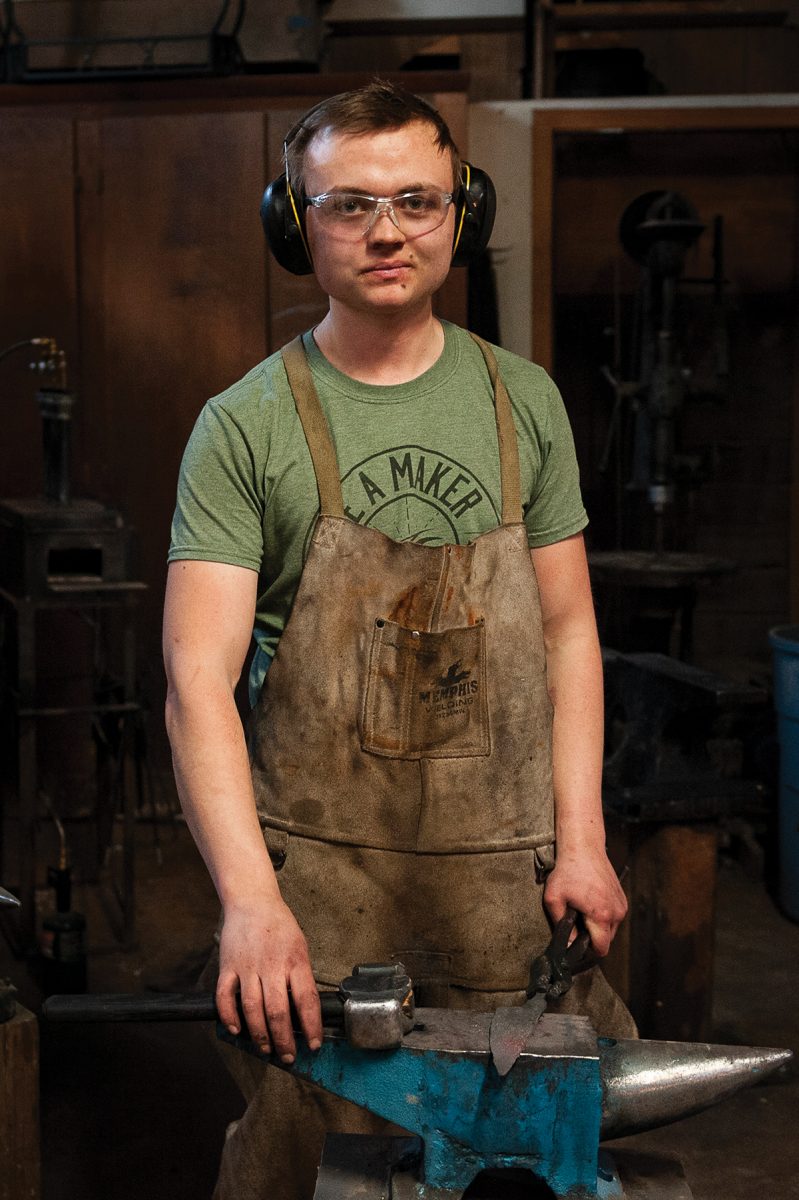
Jasper Herr at the forge.
Photo by Lauren Rutten
Youthful inexperience doesn’t enter the picture for Jasper Herr. A newly minted 20-year-old, the artisanal bladesmith became interested in working with iron about six years ago. Typical for Gen-Z, Herr’s DIY streak is strong, and he fearlessly delved into forging tutorials on YouTube.
“I became interested in forging when I was 14. I’ve always liked doing creative things,” Herr says. “My next step was building a forge in my yard and experimenting with blacksmithing. It was challenging, because I didn’t have all the right tools — but I was determined.”
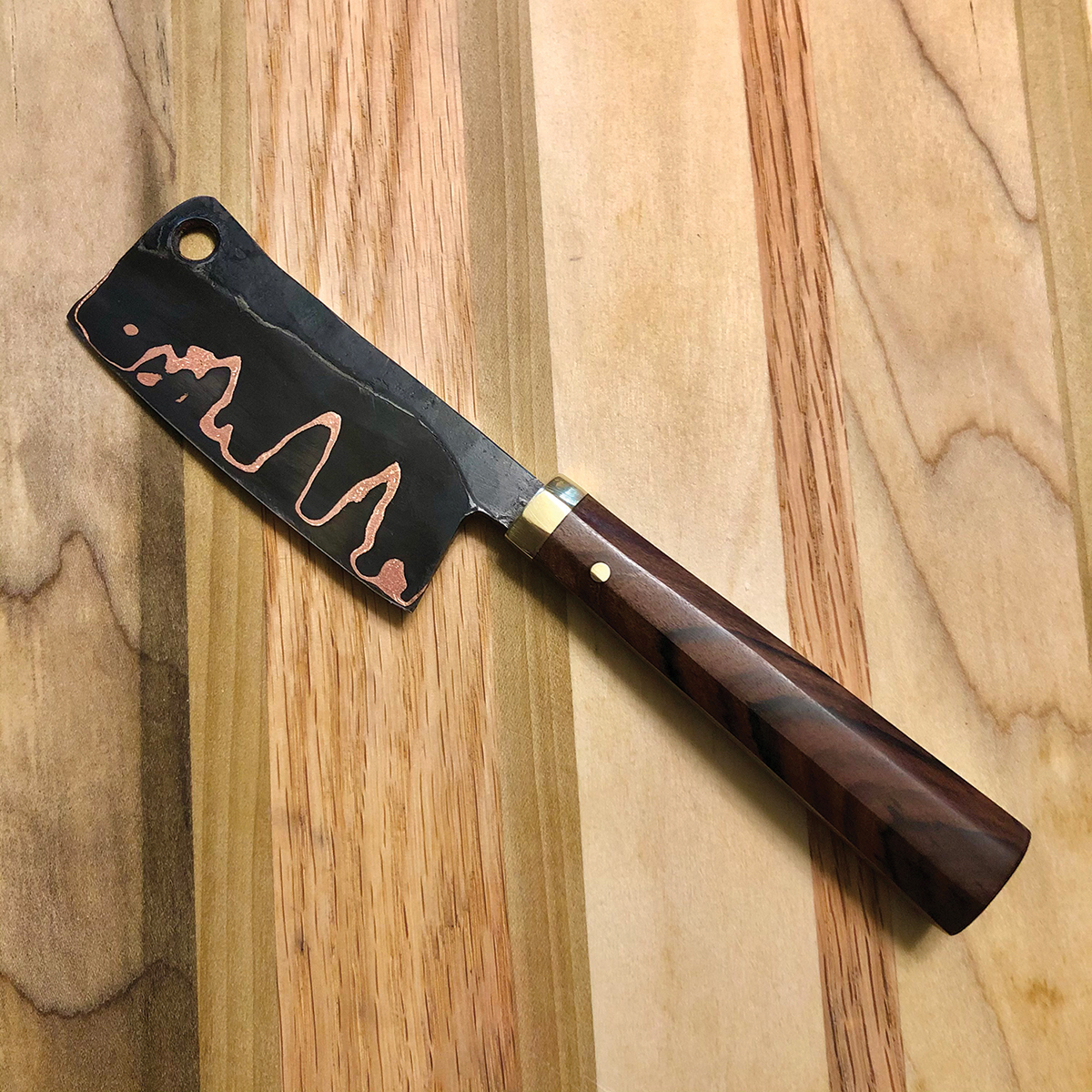
Koa and brass handle.
Photo by Lauren Rutten
Forging is hot, dirty, and potentially dangerous work, but that didn’t deter Herr. He threw on some protective goggles, spent time with respected artisans who became mentors — including Tennessee-based master bladesmith Jason Knight — and took some classes at Haywood County Community College, known for its professional-crafts curriculum. Herr got hands-on experience there in both bladesmithing and crafting “handle and guard” (the protective piece between a knife’s blade and handle).
The first pieces Herr made included a railroad spike knife and a small sword. “I still have them,” he says, “which allows me to compare them to my work now and see my progress.” He gets inspiration from Instagram and also collaborates with a leatherworker who crafts sheathes for his smaller knives. Herr’s fluency burgeoned after he taught blacksmithing at a Boy Scout camp a few summers ago, and last year, he invested in the equipment needed to do the work professionally and hung up a (virtual) shingle.
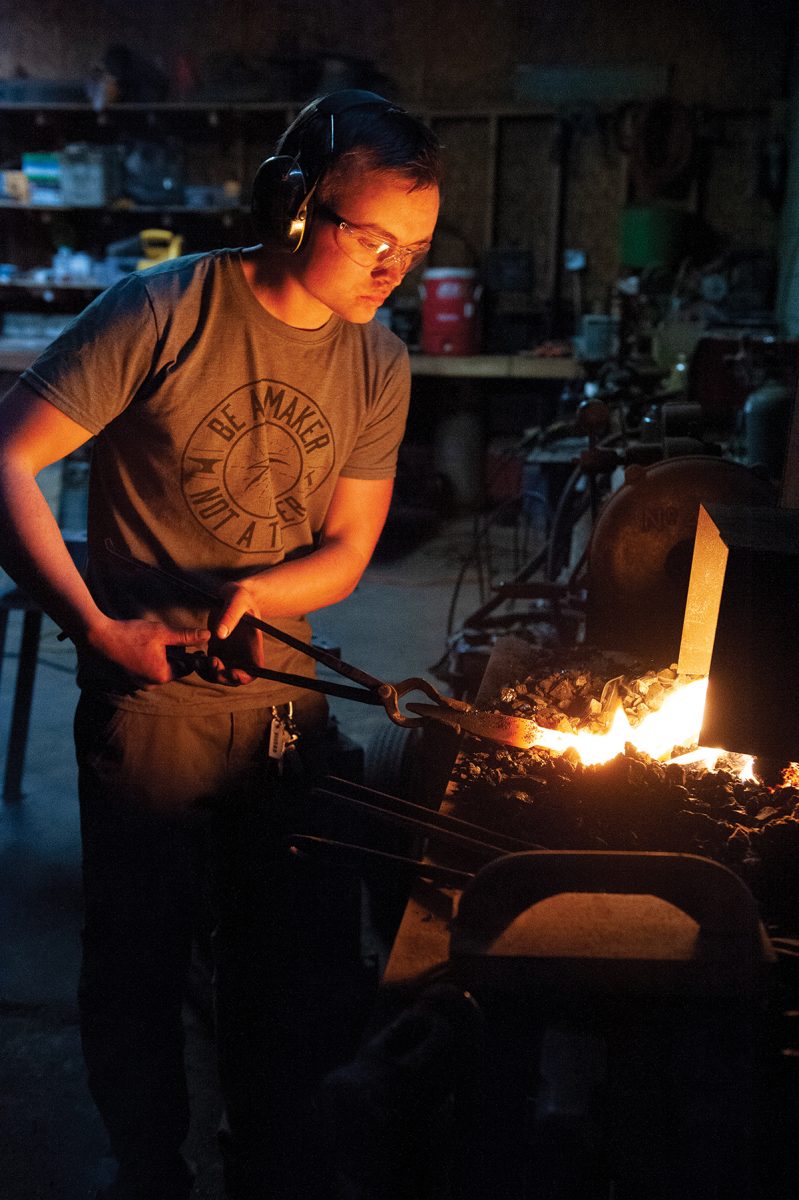
Photo by Lauren Rutten
On his website, Herr shows “everyday carry” knives, chefs’ knives, paring knives, utilitarian pieces like cleavers and axes, and beautifully rustic tools for the grill, including steak turners. His style conveys a medieval, hand-wrought aesthetic with organic industrial chic. Herr also enjoys crafting one-of-a-kind Damascus knives, forged using a centuries-old layering technique and prized for the swirling patterns on their blades. He uses reclaimed stabilized oak and exotics such as rosewood, ebony, and bocote for his knives’ handles.
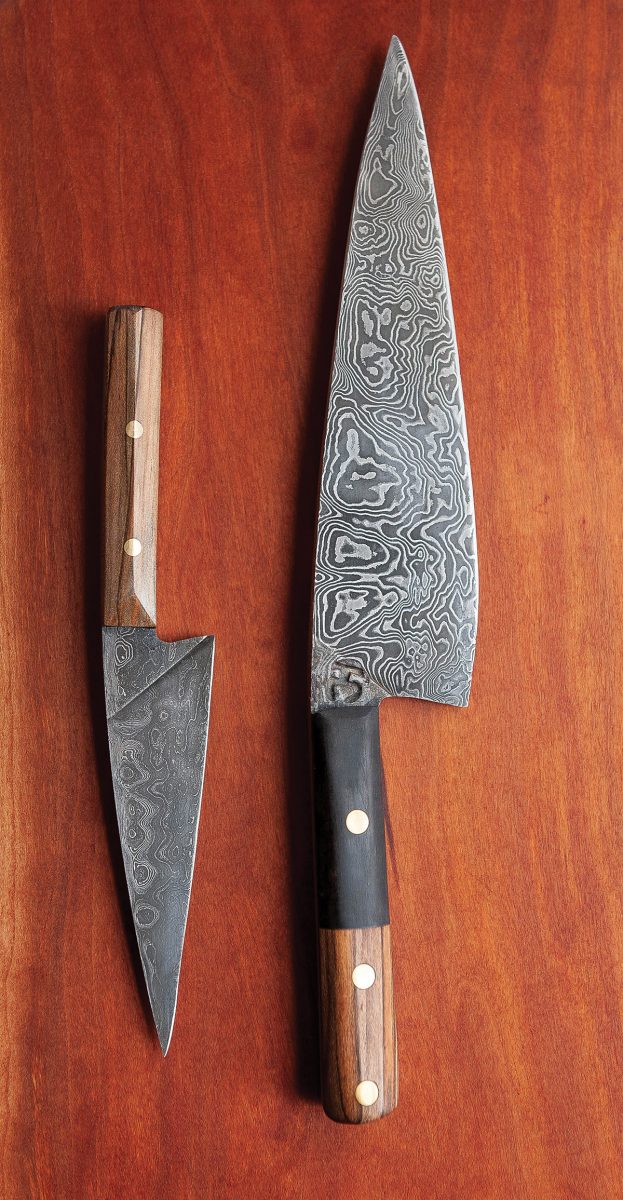
Last fall, Herr started offering bladesmithing classes at his studio, housed in the Hill Top Barn Wood Shop in Asheville’s London Road artistic/industrial hub. “I teach a basic knifemaking class where each students makes a 3-4-inch everyday carry knife, and they get a leather sheath for it, too,” Herr says.
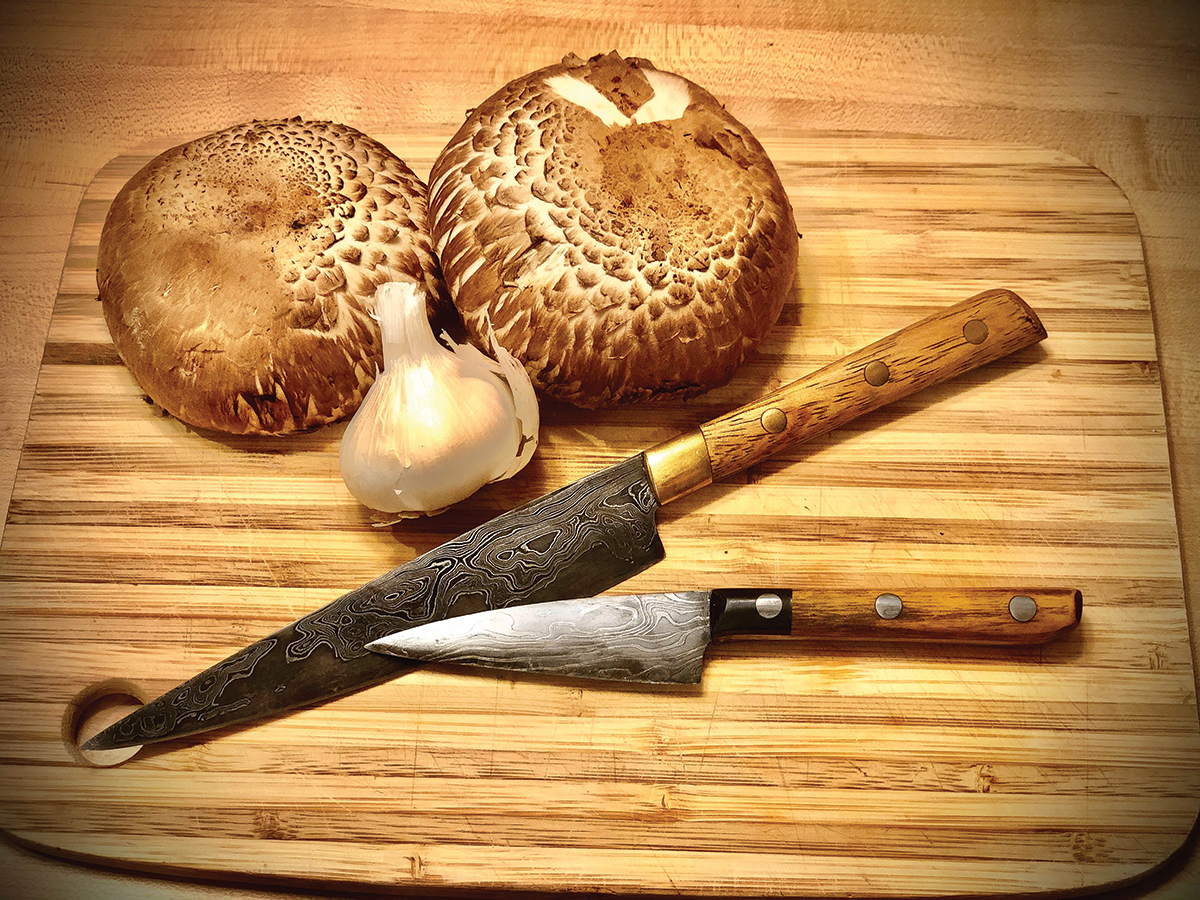
Immediacy is integral to this artist’s process. He says he gets so involved while creating that it diminishes his awareness of the outside world — always a good indicator that one is pursuing the right path. “I’ll sketch out ideas I want to incorporate into a piece, but I’m better at forging shapes and correct dimensions,” he explains. “I lose track of time … even though I can’t see exactly what my piece’s final shape will be, I start to see where I want things to go.”
Jasper Herr Ironworks, Hill Top Barn Wood Shop, 20 Simpson St., Asheville. Herr is represented by Flow Gallery (14 South Main St., Marshall, flowmarshall.com). To learn more about classes, and for more information about the artist, call 828-458-9669, e-mail jasperherrironworks@gmail.com or see jasperherrironworks.com (also on Instagram: @jasper_herr_ironworks).
